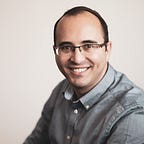How a friend’s suicide forced me to rethink mental health
When I joined my co-founders Peter Golboro and Avi Zuber to build a tool to aid therapists, I knew we were building something meaningful, with real value to help people seeking to improve their mental health.
But I didn’t yet comprehend the importance.
We originally built a tool for cognitive behavioral therapy. CBT is very homework-heavy, forcing patients to directly confront how their thought patterns drive their feelings and behavior. You have to do a lot of work to recognize triggers, and change how you react to events. It’s almost a no-brainer that instead of sending people home with printouts or workbooks, they would be much more compliant if they had an easy to use app reminding them.
But that mission changed because of my childhood friend, Adam*.
Adam and I were both the loner kids, bullied in school, bad at sports, and not very academic. I last saw Adam in the 8th grade. He moved, and we went our separate ways.
I later turned around my athletics and academics, started making money in high school freelancing as a web designer, and built up my confidence.
About 10 years ago, I stumbled into Adam! I was shocked and happy — I’d gotten married, had kids, and we moved to another part of the world. Turns out, Adam lived a short walk away!
He had a beautiful family, too, with a wife and 5 kids, some the same ages as my own.
We began bumping into each other all the time, and I’d see him a few times a week, usually as we were each running kids to drop-offs and pick-ups. We joined for family functions, celebrations, and playdates.
Adam was involved in the community, and in his synagogue. He played with his kids in the park, where I’d see him, and chat with him from time to time.
I saw him the day before he took his own life.
“I’m fine,” he’d told me.
The classic platitude everybody uses as a response to, “How are you?” to either shield how they’re feeling, or avoid conversation.
I’m fine.
Everybody says it. It’s a convenient and polite way to acknowledge the other while continuing on your day.
Adam’s children are now fatherless. His wife no longer has her husband. His friends are still wondering why they didn’t know what he was struggling with.
Adam was fine.
My mission changed that week, the week Adam ended his life and rocked his family into a heart-wrenching spiral.
We shifted and changed the name of the company. Reflective would have better crisis management, and would be a useful tool to maintain healthy therapeutic engagement between mental health practitioners of all stripes, and their patients.
Why is it important I share this story with you?
Because Adam was fine.
So many people struggle in silence. Their closest family and friends simply don’t know. Or they can’t even comprehend to what extent they suffer with the pain of loneliness or the demons of their past.
It’s highly unlikely that I could have done anything differently for my friend when I’d last seen him, which could have changed the following day’s tragedy. I could’ve invited him for coffee, or stopped him for a real conversation amidst our mutual morning rush. Maybe I’d have made him feel momentarily good, but it probably wouldn’t have averted tragedy.
It took me a long time to realize that, and to forgive myself. I knew it intellectually, but our last, brief conversation still repeats in my head on occasion. It breaks my heart.
Mental health and suicide are so much deeper than needing somebody to be friendly or kind. Adam loved his wife, his kids, and his friends.
He was seeing a therapist.
He was fine.
But Adam was a lonely soul struggling with unimaginable pain. And when crisis came, he struggled with it, and lost.
I hope that therapists will embrace new tools like Reflective so they can gain more insight into how their clients are coping between sessions. I hope they’ll see the value in having a digital safety plan in an always-present mobile app. I hope they’ll drop their resistance to technology to provide better support and healthier communication to their patients.
I hope we can help people like my friend Adam.
*Adam was not his real name.
